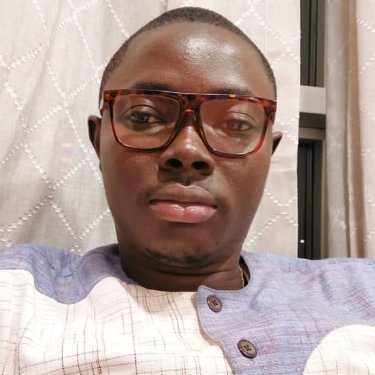Court’s decision to uphold conviction deals “unprecedented setback” to press freedom in Benin

Reporters Without Borders (RSF) will support Beninese journalist Ignace Sossou’s appeals to regional or international jurisdictions following the grave and unprecedented decision by Benin’s supreme court to uphold the conviction that led to his being jailed arbitrarily for six months last year.
In a ruling issued after examining the case on 23 July, the supreme court concluded that Benin’s laws were correctly applied by the Cotonou appeal court on 19 May 2020 when it confirmed Sossou’s conviction on a charge of “harassment by means of electronic communications.”
Originally given an 18-month sentence in December 2019, the Bénin Web TV journalist spent six months in prison until the appeal court upheld his conviction in May 2020 but reduced the sentence to 12 months in prison with six of them suspended. He was convicted simply for tweeting statements that a prosecutor made at a workshop on disinformation that both attended. Sossou did nothing wrong. A video produced by RSF showed that his tweets quoted the prosecutor accurately and could not be construed as harassment.
Sossou told RSF that the supreme court’s decision, “sounds like yet another abdication by the judges of their duty to ensure the judicial system’s independence vis-à-vis political power.” He said he planned to submit a new appeal to the court of justice of the Economic Community of West African States (ECOWAS).
“This decision is an unprecedented setback for the freedom to inform in Benin,” said Assane Diagne, the director of RSF’s West Africa bureau. “By using the Digital Law to punish a journalist who did nothing wrong, Benin’s judicial system has circumvented the right of the press and has issued a decision that violates international standards. RSF will support Sossou’s use of all legal means to get this conviction quashed. We also urge the government to amend the Digital Law and bring it into line with international law so that it doesn’t serve as a tool for arbitrarily detaining journalists.”
The supreme court ruling also runs counter to the decision issued a year ago by the Working Group on Arbitrary Detention, which concluded that Sossou did not get a fair trial, that his conviction had no legal basis and that his imprisonment was arbitrary.
Benin’s Digital Law has also been used to arbitrarily detain two other journalists. Both Casimir Kpédjo and Aristide Hounkpèvi spent seven days in police custody for allegedly disseminating false information online.
Benin has fallen 36 places in RSF's World Press Freedom Index since 2016 and is now ranked 114th out of 180 countries.



